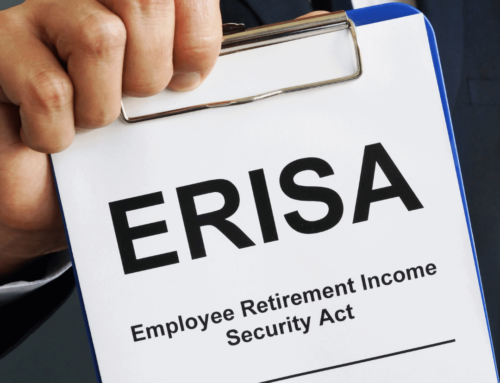Exhaustion of administrative remedies is one quirk of claims governed by ERISA is the requirement that “administrative remedies” be exhausted prior to the filing of a lawsuit to enforce rights to the claimed benefit entitlement.
“Quirk” is a polite term because the exhaustion of administrative remedies requirement is, quite frankly, another one of the numerous mechanisms provided in the ERISA statute which slants the provisions thereof unfairly in the favor of the Employers and Insurance Companies. As discussed elsewhere on this website, the Plan Administrator (usually the insurance company) is given discretionary authority in rendering its benefits determination which must be given deference by the reviewing Court of Law.
The exhaustion of administrative remedies requirement basically forces the claimant to engage in the administrative appeal process set up by the Plan Administrator. While there are federal regulations governing the process, the end result is typically untoward delay in addressing the issue of entitlement. The process is supposed to one in which the Plan Administrator is required to consider all of the evidence but typically the process is just one which allows them to gather further evidence in their favor and fill in those places where mistakes were made in past handling of the claim. It is apparent to the undersigned that the merits of the case are not the primary concern but instead there are policy decisions made about certain claims and no amount of supportive evidence will change whatever policy decision has been made regarding a benefit denial.
Case law governing the “exhaustion of administrative remedies” requirement is clear even though there is no express provision in ERISA requiring as much. Exhaustion of remedies is a requirement imposed on the claimant as a matter of case law grafted onto the ERISA statute’s language. In the 11th Circuit, where most claims of the writer pend, the court has specifically held the administrative remedies must be exhausted prior to the filing of a lawsuit. Perrino v. Southern Bell Tel. & Tel. Co., 209 f.3f 1309 (11th cir. 2009). However, the rule is not without exception. Generally, if the administrative process can be shown to be futile or inadequate then the requirement will be waived. Curry v. Contract Fabricators, Inc. Profit sharing Plan, 891 F.2d 842 (11th Cir. 1990). Another basis for waiver of the requirement would exist if there is language in the governing Plans Documents which reasonably leads the claimant to believe he can proceed directly to Court. Watts v Bellsouth Telecomm., Inc., 316 F.3d 1203 (11th Cir. 2003).
In any event, the administrative appeal process set up by the Plan Administrator must be followed. The governing federal regulations allow a claimant 180 days to appeal the initial denial of claims involving disability benefits. Other time frames may apply for other appeals or types of benefits. See, generally, 29 C.F.R. §2560. The claimant must be careful to comply with these deadlines as the failure to appeal within these deadlines could be the death knell to the claim. One must, under no circumstance allow the deadline to pass without affirmatively placing some form of document in the possession of the Plan Administrator claiming the right to appeal. Sending the document with some proof of delivery is important.
The appeal should include all evidence which supports the claimed entitlement together with a rebuttal of the points made in the letter of denial. Remember that doctor’s records generally address medical issues and the specific issues governing the entitlement to the legal claims made the subject of the benefit entitlement to be enforced. Some specific input from your doctor would be appropriate in claims with medico/legal issues. Please keep in mind that the appeal will likely be your last chance to get evidence before the Plan Administrator and, ultimately, the Judge. It must been done with thoroughness to handle the exhaustion of administrative remedies.
Please keep in mind that the foregoing is not intended as legal advice applicable to any individual person’s unique legal situation. Its sole purpose is to give a general idea of the existing status of the law as it applies to the point of law addressed above. You cannot rely on the foregoing as legal advice. You cannot make legal decisions based on its contents. If you have questions arising out of this point of law, you should contact an attorney who routinely handles claims involving policies of disability insurance. The law offices of Herbert M. Hill, P.A. handles such cases and would welcome the opportunity to discuss your case with you, at no charge. You can contact me at 407-839-0005 or at hmh@herbertmhill.com.
If you would like, after discussing your case, we can set a conference. That conference would be free of charge and you would be under no obligation to hire me nor would you feel any pressure from me to do so.
Herbert M. Hill, P.A. is a law firm located in Orlando, Florida with a practice extending throughout the state of Florida and the southeastern part of the United States. Areas of practice include disability and employee benefit claims of all sorts. The firm handles any claims arising under the Employee Retirement Income Security Act (known and referred to as “ERISA”) for disability benefits, medical benefits, retirement benefits of any sort, including pension, 401k, termination agreements or the like as well as claims arising under private disability policies.





